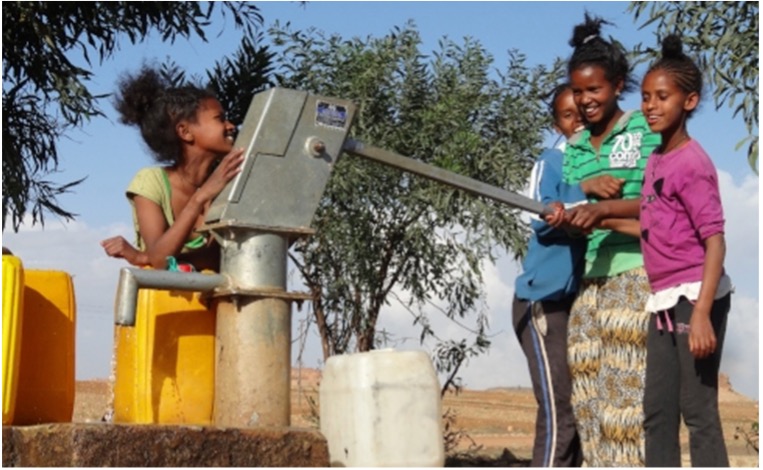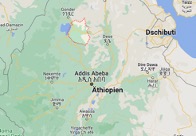Ethiopia
Amhara
Safe Water Amhara Project – SWAP
Resource and Climate Protection and Sustainable Access to Clean Water in rural Ethiopia
Background
The health of rural communities across Ethiopia is severely affected by infections and diseases caused by the consumption of contaminated water. The contamination mostly results from the fact that there are no sources protected from contamination. In parallel, there are hundreds of wells in the project region that could provide clean water but are no longer functional.
The project area in the South Gondar zone also suffers from climate-related weather extremes. On the one hand, the area is affected by prolonged drought, and on the other hand, it is highly vulnerable to flooding: In the summer rainy season of 2022, it was hit by flash floods. Such floods often contaminate the water sources with germs that are hazardous to health.
In the surveyed villages in the project area, 67% of the households report that they boil the water before use. With serious consequences for the tree population in a country where 88% of the energy needs of rural households are covered by wood. Deforestation forces women and children to walk further and further distances to collect enough fuel for the household. Reduced tree cover affects soil fertility and increases the vulnerability of agricultural land to soil erosion and flooding. This not only threatens crop yields, food security and household income, but also biodiversity.
Project location
The project is being implemented in the South Gondar Zone, one of eight administrative zones in the Ethiopian region of Amhara. The project covers five woredas (districts) in the South Gondar Zone.
Project beneficiaries
The proposed target districts of Farta, Guna Begmedir, Lay Gayent, Estie and Simada are home to about 60,000 people who will benefit from the project. In a special way, the project will benefit women and children, who will be spared the long, arduous journeys to transport water once water access points near the settlements have been restored.
Project goal
With the repair of defective pumps, the project beneficiaries receive clean and safe water access, which not only improves health but also increases the quality of life in general. In addition, further deforestation of tree stands is prevented and important contributions to resource conservation and climate resilience are made.
Project activities
To achieve this, the project envisages the following activities, among others:
- 200 defective water points in the project area that are suitable for repair will be identified, repaired and made functional again;
- Yield tests and quarterly quality tests will be conducted and adjustments made as needed; a supply chain for spare parts will be established and maintained;
- 200 WASH committees will be formed and equipped with the necessary technical skills, financial resources and administrative competencies to ensure the long-term functionality of the rehabilitated water points;
- Training on hygiene promotion and the healthy and sustainable use of water resources will be carried out in every community by the WASH committee members.
- Conduct a research project in cooperation with the University of Birstol to investigate the resilience of WASH systems under extreme weather events.
- Another project component is a research project to study the resilience of WASH systems (WASH stands for water, sanitation and hygiene).
Local partner organisation
Vita is a registered Irish NGO that has been working with rural communities in East Africa for 33 years. With project offices on the ground and a predominantly Ethiopian staff, Vita is well anchored in the project areas. Their approach combines the knowledge and initiative of local communities, transformative technology and innovative financing to help build resilient and equitable rural economies. Vita’s thematic focus is on access to clean water, climate-compatible energy supply for rural households, resource conservation and food security.
Vita Green Impact Fund
The project provides for an innovative form of refinancing, which is sustained by the sale of CO2 emission certificates: By eliminating the need to boil polluted water, deforestation is prevented on a significant scale, thus making a valuable contribution to climate protection. The reduction of CO2 emissions is calculated by Vita and verified by The Gold Standard, an independent certification label, recognised and sold internationally as carbon credits to organisations and individuals who want to offset their CO2 footprint. This creates a source of income that makes the project self-sustaining in the long term, financing the maintenance of water points and reinvesting surpluses.
Costs
ca. 400,000 Euro
Sponsors
Cordes & Graefe Stiftung
Oswald Stiftung
Duration
September 2023 until 2026
Contact
Monica Denomy
m.denomy@wasserstiftung.de

